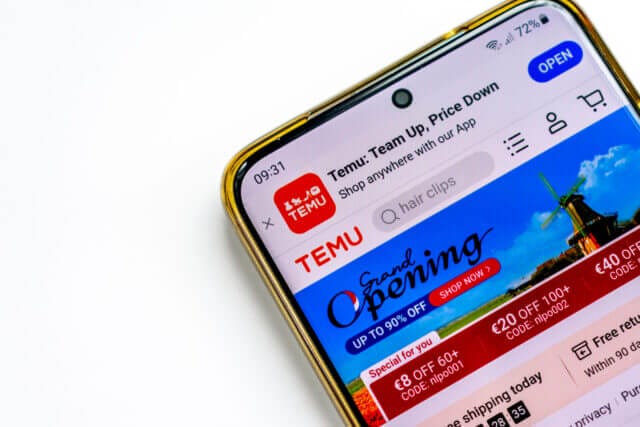
What is Temu?
Temu, an emerging e-commerce company, has rapidly gained traction since its US launch in 2022, under the umbrella of PDD Holdings. With a global reach, this Chinese-owned company resembles fashion retailer giants like Wish, Romwe, and Shein, offering a diverse array of products from apparel to technology.
While its offerings extend beyond clothing, Temu’s supply chain practices in the fashion sector have come under scrutiny for their environmental and social ramifications. Let’s take a deeper dive into some of these issues and decide whether we should steer clear of Temu.
Is Temu Fast Fashion?
The very nature of selling clothing items at prices as low as 22 cents a piece quite clearly indicates fast fashion in play. Such pricing, while attractive to consumers, raises concerns about the sustainability of production processes, portraying the typical characteristics of fast fashion.
Producing items at such low costs economically is rarely without the expense of environmental and social costs, and selling such high quantities, similar to Shein, indicates Temu as a fast fashion no-brainer.

Why Are Temu’s Clothes So Cheap?
Temu operates an online marketplace where shoppers can find items at prices as low as 20 cents a piece. This is partly due to the increased demand for ultra-fast fashion, churning out new items at rapid rates and low costs.
The promotion of Temu on TikTok and advertising at the Super Bowl helps Temu reach a wider audience in the online shopping sphere and therefore creates greater demand. As a result, Temu supplies this demand with low-priced products, keeping budget-conscious shoppers coming back for more.
However, all of this is at the cost of those producing these garments. Temu can keep their prices so cheap by minimizing costs elsewhere which involve forcing individuals into labor, not following environmental guidelines, and using unsustainable low-quality materials in manufacturing. With the growth of social media promotion of fast fashion brands like Temu, the demand for affordable clothing only grows, fueling the success of platforms and the damaging processes they engage in to provide shoppers with clothes.

Temu and Sustainability: Their Business Model
Temu’s business model focuses on low costs of sales, resulting in high social and environmental costs elsewhere. Aiming for the lowest price on the market forces producers and manufacturers working under Temu, to work at a loss economically so that Temu can grow its name and become a popular brand. This unsustainable and exploitative practice puts producers and their workers in poor financial positions, earning low wages while also promoting the consumption of environmentally damaging products.
Furthermore, Temu invests heavily in influencer partnerships, leveraging high-profile figures like James Charles to promote Temu’s brand. This marketing tactic encourages a culture of overconsumption by enticing customers with inexpensive and trendy items, which often find their way to landfills within a matter of months. The attractive low prices created by Temu not only encourage excessive consumption but also foster unrealistic expectations of affordability across the retail landscape, further exacerbating environmental strains.

In essence, Temu’s business model, centered around cheap pricing and influencer-driven marketing, underscores the systematic challenges posed by fast fashion practices, prompting critical reflections on consumption patterns that emerge from Temu and their broader impacts when this cheap overconsumption is adopted elsewhere.
Is Temu Environmentally Sustainable?
Temu claims to uphold values of empowerment, integrity, inclusion, and social responsibility, they suggest this includes being ethical and honest and doing good for the world. On their sustainability page, they highlight a partnership with Trees for the Future, where they contribute towards tree planting initiatives to counteract carbon emissions. This sustainable action, according to Temu, has saved 312,930 metric tonnes of carbon from contributing to greenhouse gas emissions and global warming.
However, their fine print reveals that these figures are predictions for the next 20 years and are therefore not accurate representations of the company’s current sustainability efforts. Moreover, Temu fails to mention ways in which they are taking steps towards sustainability within their company.

With this being the only apparent step made towards sustainability, with no sustainable efforts made within the company itself, coupled with accusations of greenwashing to mask their environmental and social impacts, it becomes evident that Temu isn’t sustainable. They cannot be considered carbon neutral, and it is very clear that Temu is fast fashion.
Is Temu’s Online Marketplace Greenwashing?
Temu has faced recent allegations around greenwashing, with some customers noting instances of misleading messaging. Some have reported emails from Temu illustrating their commitment to environmental sustainability, with the line ‘Temu is committed to environmental sustainability’ as well as options to add more items to their purchase in order to reduce the carbon emissions of each individual item. This is a clear case of false advertising.
Being committed to environmental sustainability and selling as many items as fast as possible at as cheap as possible are mutually exclusive. If prices are too good to be true it is probably because they are.
Temu’s false advertising could potentially mislead consumers into purchasing more items, accelerating environmental degradation. Buying more items won’t reduce your carbon footprint, it would increase your levels of consumption of items that have been produced unethically both in terms of forced labor and environmental damage, when products are only likely to be kept for short periods of time.
Does Temu Consider the End of Life of Their Products?
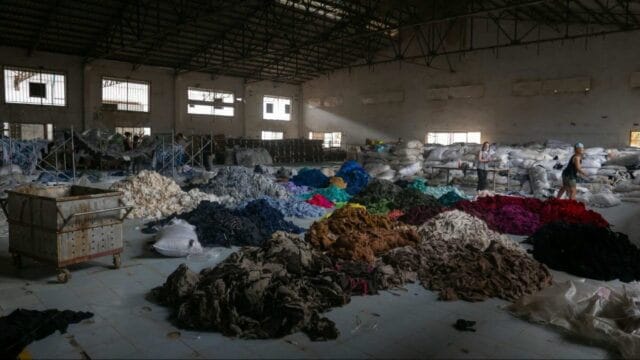
Substandard products from Temu contribute to rapid waste accumulation, and mass landfill disposal contributes to environmental harm, sending masses of non-degradable plastic and synthetic fibers to landfills. These quickly disposable novelty items not only represent a financial waste for consumers but also exploit underpaid and forced workers involved in their production.
Despite these consequences, Temu fails to address the negative environmental impacts of its fast fashion habits in all stages of consumption, ignoring end-of-life management by lacking any mention of a recycling program for products. This oversight again shows us that Temu isn’t sustainable and runs a fast fashion business.
Is Temu Ethical?
Temu has been accused of a multitude of unethical practices from forced labor, copyrighting images from other businesses, stealing designs, data leaks, violating privacy rules, tax evasion, the list goes on, and very much suggests Temu to be unethical.
Temu’s Labour Conditions
Concerns over Temu’s labor practices have emerged amid claims of unethical conduct. While claiming they prohibit forced and child labor, without providing any evidence to deny these claims, Temu has faced allegations from the US and UK in 2023, around very high risks of forced labor occurring within the company, with direct links to the oppression of the Uyghur people, forcing workers into oppressive conditions and stripping them of their freedom in an entirely unethical manner.
They have also faced accusations of failing to pay workers and using harmful chemicals that contaminate water sources in less affluent areas where workers live. This not only environmentally impacts soil, water, and crop sustainability but also poses environmental health hazards to the individuals who live in these communities, increasing the risk of disease. In addition, such practices limit workers’ alternative employment options as these factories come to dominate the local job market.
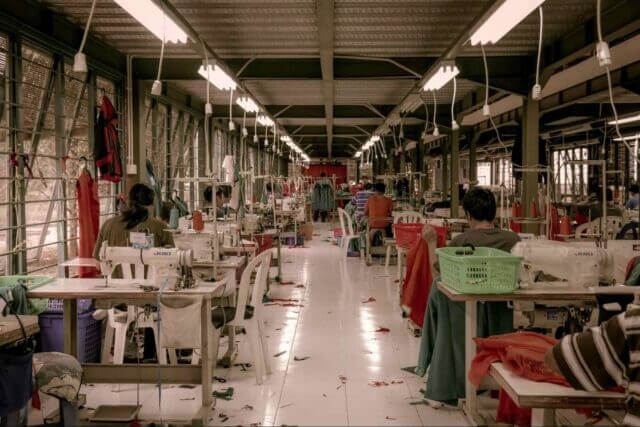
An Insight Into Temu’s Transparency
Temu appears to lack transparency in its operations, despite claiming to value honesty. The company discloses very little about its business practices, denying allegations of forced or child labor but providing no evidence to prove this. Similar concerns regarding data security have surfaced, resulting in Temu’s temporary suspension from the Apple app store over risks around customers’ personal data being leaked. Such breaches compromise privacy and raise ethical concerns about Temu’s practices.
Temu’s Unethical Loopholes
Recent news reports and concerns voiced by US politicians have brought to light Temu’s exploitation of loopholes, particularly the de minimis exemption. Temu is able to ship goods together under a certain value making them exempt from customs inspections and taxes, saving the company money but operating outside the bounds of US shipping regulations.
Moreover, Temu has been found to frequently use other businesses’ photography of items to advertise and sell their own products at a cheaper cost. By sidestepping the need to hire photographers and create original designs Temu copyrighted the intellectual property of small businesses.
This issue of copyrighting is unethical as consumers are more likely to pick the cheaper option of clothing if both options appear the same. Why wouldn’t they if they don’t know the truth behind the product? This undermines potential sales for other businesses that may also be more environmentally conscious and ethically sound, and violates copyright laws, presenting a clearly unethical company.

One prominent example of this unethical behavior is evident in Temu’s sale of crochet designs. Unlike machine-produced items, crochet requires significant time and manual labor, normally resulting in higher costs of products to reflect this. However, Temu offers these crochet items at prices far below their true value with designs again taken from small businesses that invest a lot of time into creating these designs.
This raises ethical concerns regarding fair compensation for labor as workers likely invest extensive hours creating these garments for minimal wages. Overall, Temu’s exploitative practices highlight the need for greater accountability and should be avoided as a place to shop on the basis that they don’t adhere to ethical standards in the e-commerce industry.
Are Temu and Shein the Same?

While they are completely different companies, Shein and Temu are both known for their cheap commodities, with Shein having a similarly rapid rise into the fast fashion industry before Temu. They share many of the environmentally and socially damaging practices that make Temu a fast fashion company.
Both maintain shockingly low prices of items while selling vast amounts of items, at low quality, through the use of exploited or forced labor.
To Summarize – How Sustainable is Temu?
In summary, Temu, an emerging e-commerce giant, is facing mounting scrutiny over its practices and ethics. Temu’s approach as a growing fast fashion giant characterized by low prices and high volume is a clear signifier of unsustainable practices that lead to environmental degradation and social injustice.
While Temu claims to uphold the values of sustainability and social responsibility, its actions suggest otherwise. From exploiting loopholes in shipping regulations to using greenwashing tactics, Temu’s business model of selling items at such a low cost is bound to have costs arise elsewhere, and the sheer volume at which products are being sold places it high in the list of brands to avoid.
Furthermore, allegations of forced labor create major ethical concerns on top of Temu’s fast fashion practices. The company’s lack of transparency adds to these concerns, with limited disclosure of its business practices and insufficient evidence to refute allegations or prove environmental sustainability, thus it should be avoided.
As consumers, we need to realize that if you as a consumer are getting a good cheap deal, it is likely at the expense of the planet and individuals forced into work. We need to be critical of Temu, avoid shopping on the site, and start looking into where you are buying from before you buy, while advocating for more ethical and sustainable alternatives.

Ethical Alternatives To Temu
It’s not all doom and gloom, here we’ve picked some sustainable alternatives to help break the fast fashion cycle, all without breaking the bank.
1) Pact
- Affordable clothing
- Fairtrade
- Products made from organic cotton that’s more environmentally friendly
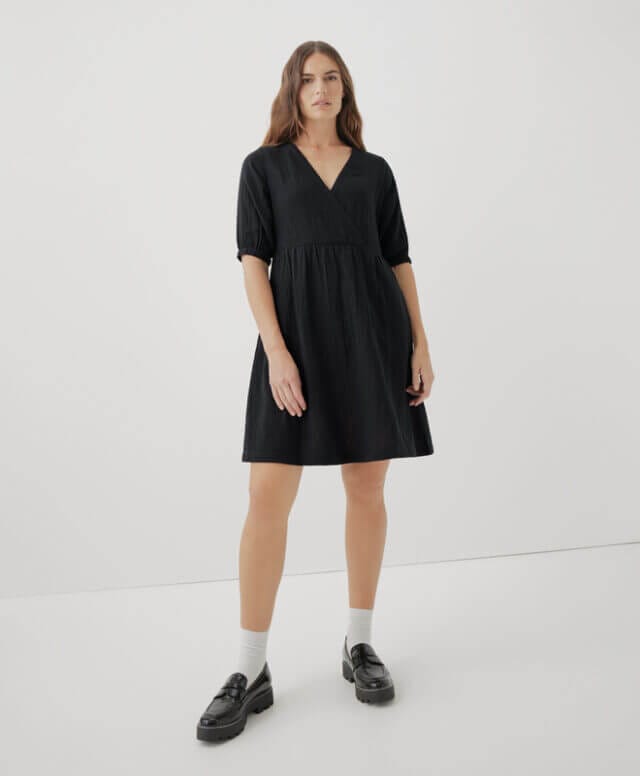
2) Boldwill
- Known for making their clothing plastic-free
- A great alternative to the numerous plastic products provided by Temu
- Ensure living wages for all workers
- Have a reclaim program considering sustainability at the end of the consumption chain

3) Wolven
- Discusses transparency of businesses and manufacturers they use
- Sell pre-loved clothes on their site
- Fabric made with sustainable materials
- Uses sustainable packaging – considering multiple aspects of the chain

More Alternatives to Temu
It doesn’t just stop here, there is a whole range of other sustainable brands you can shop at. Check out our Brand Guide for over 100 certified brands and feel free to have a deep dive!

Grace is graduating from the University of Sheffield this summer after studying Geography. She loves all things sustainability and fashion, spending her time making and up-cycling clothes. She also has a new found love for writing and a passion to help make positive change in the world.








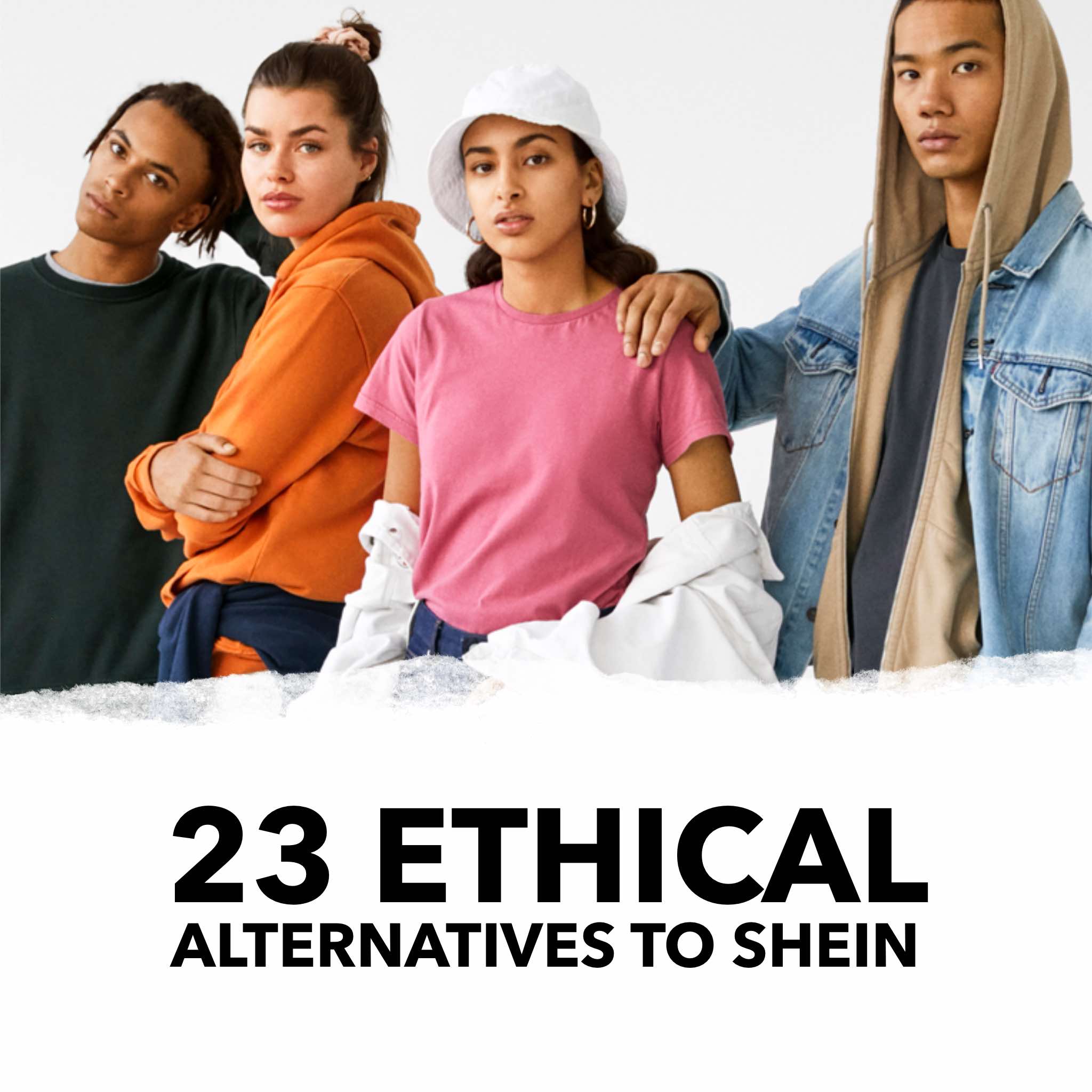

3 thoughts on “Is Temu Fast Fashion? How Sustainable Are They? Let’s Discuss.”
does “WISH” fall into the same category as. “SHEIN” and
“TEMU” ?
Blanca, great question. Wish has a lot of similarities to Temu. You’ll see a lot of unbelievable prices across the site, which usually means exploited labor. In the fashion section you’ll find tons of that plus unsustainable materials and poorly made goods. While technically Wish is like a marketplace I would use caution shopping there for all of these reasons. It is a US based company, whereas Temu and Shein and China based. But both sell similar items.
Are they sustainable or ethical when they source their labor from forced labor/sweatshops????